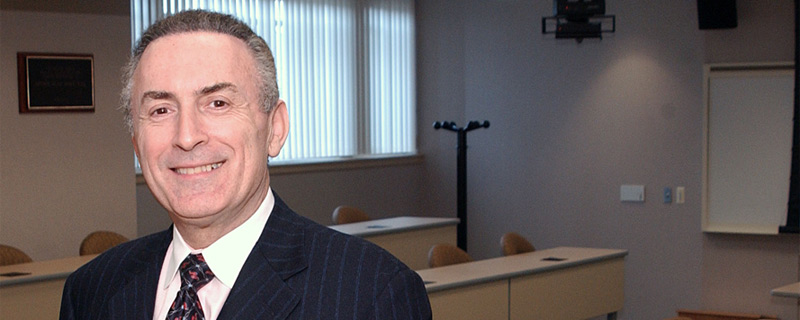Piloting Trials
Temple Law alumnus Alan Wolk ‘68 is the founding partner of The Wolk Law Firm in Philadelphia. The firm, which concentrates its practice in the area of aviation law, has represented victims in dozens of significant aviation tragedies over the past 35 years. The firm’s success is evidenced in verdicts and settlements of nearly $1 billion during the last decade alone.
In representing victims of aviation accidents, Wolk brings his personal experience to the courtoom. Wolk himself has been a pilot for more than 30 years and holds the Federal Aviation Administration’s highest pilot’s certificate, the Airline Transport Pilot for multi-engine land and sea aircraft, and single-engine land and sea airplanes. He has thousands of hours of flight experience and has also flown in air shows throughout the country. In 1996, the Panther jet Wolk was flying developed engine trouble on a flight from Kalamazoo, Michigan. Wolk managed to guide his crippled aircraft away from populated areas before he crashed. Now recovered from the injuries he incurred, Wolk says he is keenly aware of what the flight crew experiences in an airplane crash and the human and mechanical factors that contribute to it.
That expertise has made Wolk a leading figure in aviation law, responsible for nearly $1 billion in verdicts and settlements in the past decade. One recent verdict in particular stands out – an $89 million award against Avco Corporation inPridgen v. Avco Corp. for a defective carburetor in a 1999 plane crash that killed three people and severely injured a fourth. Wolk predicts that delay damages from the defendant’s appeals will raise the total to well over $100 million.
The verdict in Pridgen was significant not only because of the size of the award, but because it was decided under the General Aviation Revitalization Act of 1994. This federal statute imposes a statute of repose on lawsuits against aircraft and their component manufacturers eighteen years after the product is first sold. Wolk argued the case under the “knowing misrepresentation” exception to that statute, which requires a claimant to show that a manufacturer knowingly misrepresented essential information to the FAA that relates to the safety of the product. The jury in the case agreed with Wolk and held Lycoming Engines liable for defect, negligence and conduct justifying the imposition of punitive damages. The compensatory damages totaled just shy of twenty-five million dollars and punitive damages of sixty-four million were then awarded in a separate jury deliberation after the defendant’s net worth of six hundred forty-five million was disclosed by stipulation.
Wolk earned a B.S. cum laude from Temple University in 1965 and remained at Temple to earn a J.D. in 1968. He was honored by the law school as its 2005 Founder’s Day award recipient, and teaches a course in aviation law as an adjunct member of the faculty.

